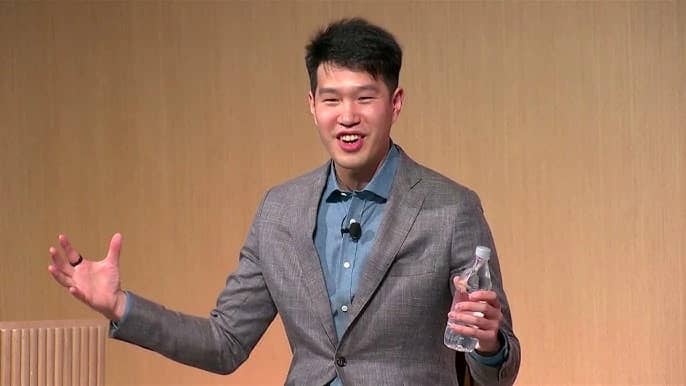Subscribe to wiki
Share wiki
Bookmark
Mark Chen
The Agent Tokenization Platform (ATP):Build autonomous agents with the Agent Development Kit (ADK)
0%
Mark Chen
Mark Chen is an artificial intelligence researcher who serves as the Chief Research Officer at OpenAI. He is also a coach for the United States team that competes in the International Olympiad in Informatics (IOI). [1] [2]
Education
Chen earned a bachelor's degree in math and computer science from the California Institute of Technology (Caltech) and later received a PhD in computer science from New York University (NYU). [3]
Career
OpenAI
Chen joined OpenAI in 2018 after working as a quantitative trader at Jane Street Capital, where he developed machine-learning models for futures trading. At OpenAI, he has been a key figure in the development of several of the company's flagship projects. He spearheaded the creation of DALL-E, the company's generative image model, and later worked on integrating image recognition capabilities into GPT-4. Chen also led the development of Codex, the generative coding model that powers GitHub Copilot. [2]
As Chief Research Officer, Chen shares leadership of OpenAI's research division with Chief Scientist Jakub Pachocki. His responsibilities include shaping and managing the research teams. His public communications often involve announcing or demonstrating significant OpenAI projects and milestones. For example, in April 2022, he shared images generated by the DALL-E 2 model, and in March 2025, he posted about the launch of native image generation capabilities within GPT-4o. In February 2025, Chen announced that a feature called "Deep research" was being rolled out to all professional-tier users of ChatGPT. This feature was designed to enable the AI to find, analyze, and synthesize information from hundreds of online sources to generate comprehensive reports. [1] [2]
In addition to his corporate role, Chen is actively involved in competitive programming as a coach for the USA International Olympiad in Informatics (IOI) team. He has connected this coaching work to his professional motivations, stating a long-term goal of creating AI models that can perform at the level of the most elite human competitors. In September 2024, he announced that OpenAI's models had achieved a performance level equivalent to a gold medal on that year's IOI competition problems. [1] [2]
Leadership and Management
In his leadership role, Chen is responsible for navigating the competitive landscape of AI research, including talent retention. In June 2025, following the recruitment of four senior OpenAI researchers by Meta, Chen addressed the company in an internal memo. He expressed a "visceral feeling... as if someone has broken into our home and stolen something" and assured staff that leadership was actively working to retain employees. He stated that OpenAI was "recalibrating comp" and exploring "creative ways to recognize and reward top talent." While committing to fight for his staff, Chen also emphasized his "high personal standards of fairness," noting he would not retain talent "at the price of fairness to others." In the same memo, he cautioned against getting "too caught up in the cadence of regular product launches and in short-term comparison with the competition," urging a focus on the "main quest" of advancing toward artificial general intelligence (AGI). OpenAI CEO Sam Altman publicly praised Chen's leadership during this period. [3]
Research and Commentary
Chen publicly comments on developments and trends within the artificial intelligence industry. In January 2025, he acknowledged the work of competitor DeepSeek on producing an "o1-level reasoning model," noting that their research had independently arrived at some of the same core concepts that OpenAI had discovered. In the same discussion, he addressed public narratives around the high cost of developing advanced AI. Chen stated that the response was "somewhat overblown," explaining that by separating the development process into two paradigms—pre-training and reasoning—it becomes possible to optimize for capability across two axes instead of one, which can lead to lower operational costs. He affirmed OpenAI's focus on improving model efficiency and its commitment to executing its research roadmap to release more advanced models throughout the year. [1]
Views on AI Development
Chen has articulated that his personal background in competitive programming informs his research goals. He has stated a desire to "create models which accelerate ourselves," viewing it as a rapid path to progress. He and his colleagues argue that proficiency in math and coding serves as the "bedrock for a far more general form of intelligence" capable of novel problem-solving. [2]
Regarding the path to AGI, Chen has highlighted the concept of "autonomous time" as a key metric. He defines this as "the amount of time that the model can spend making productive progress on a difficult problem without hitting a dead end." He has also expressed continued confidence in scaling laws, which posit that models improve with more computational power, stating, "I don’t think there’s evidence that scaling laws are dead in any sense." He believes that research breakthroughs will continue to overcome bottlenecks in data or model architecture. [2]
When asked about the 2024 departures of key members from OpenAI's superalignment team, Chen characterized the situation as a result of "highly personal decisions." He suggested that in a "very dynamic field," a company may not evolve in the way a particular researcher anticipates, leading them to leave. He noted, "Sometimes the field is just evolving in a way that is less consistent with the way that you’re doing research." [2]
See something wrong?
The Agent Tokenization Platform (ATP):Build autonomous agents with the Agent Development Kit (ADK)
